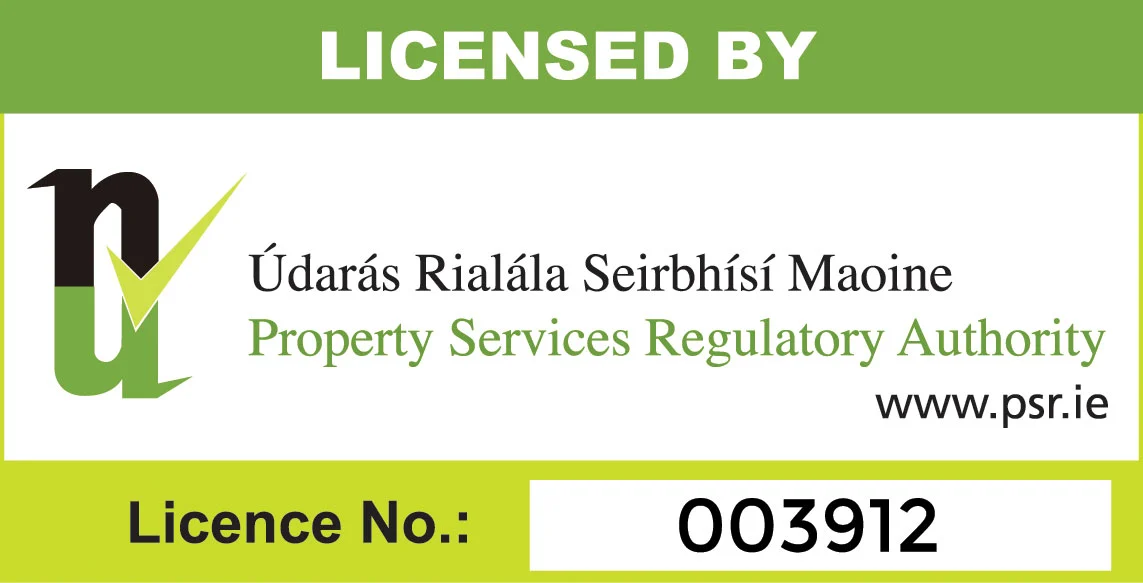Grant of Probate
A grant of probate is issued where the deceased has made a valid Will and nominated an executor. The executor is the person charged with overseeing the dispersal of the assets of the estate in line with the wishes of the deceased as expressed in their Will.
Grant of Administration Intestate
Where a person dies without a Will, they are said to have died intestate. In such instances, the Grant issues to the nearest next of kin and is referred to as a Grant of Administration Intestate. The Succession Act 1965 is used to determine the next of kin.
Grant of Administration with Will Annexed
This arises where a valid will has been left but an application is made by someone other than the nominated executor. This can happen for a number of reasons such as the executor renouncing their role, the executor dieing or the executor doesn’t apply for grant of probate.
What is a Grant of Probate?
The executor will be issued a Grant of Probate by the Probate Office or if no Will was left by the deceased, a Grant of Administration. This Grant is the Probate Court's decision that the deceased’s Will is valid, thus giving the executor the authority to administer the estate. Applications are made to the Probate Office or the District Probate Registry for both a Grant of Probate and a Grant of Administration.
Is a Grant of Probate Always Required?
A Grant of Probate is not required under the following circumstances.
-
If there is only a cash asset, such as a bank account with less than €25,000 in the sole name of the deceased, this can be handled under the small estates procedure, which will allow access to any cash asset under this amount of €25,000 thus negating the need to apply for a Grant of Probate.
-
A Grant of Probate is not required where all assets and property are held in joint names.
However, a Grant of Probate will always be required if there are shares in land or property in Ireland. Generally speaking, and subject to legal advice on the particular situation, unless there is a surviving joint owner, an application must be made for a Grant of Probate or a Grant of Administration and this must be granted before a sale of a property can complete.
How Long Does it Take?
The personal representatives of a deceased person shall distribute his estate as soon after his death as is reasonably practicable, having regard to the nature of the estate, the manner in which it is required to be distributed and all other relevant circumstances, but proceedings against the personal representatives in respect of their failure to distribute shall not, without leave of the court, be brought before the expiration of one year from the date of the death of the deceased. Time allowed for distribution [1695 (c. 6) s. 4] Succession Act 1965
The length of time it takes to get the Grant of Probate can differ depending on how complicated or great the deceased’s estate is and the current backlog in the Probate Office. Consideration must be given to the fact that the whole process can take anything from four to six months from the date that the required documentation is received, but it can, depending on the individual case, take considerably longer. In general, most Probates are completed within a six month time frame from your solicitor receiving all the required information.
How Much Does it Cost?
Each law firm has their own pricing structure. It is therefore important to source a professional solicitor who will not only offer the best advice, but can also offer a competitive fee with no hidden costs and be able to guide you through the whole process in a clear manner and without delay. It is best to check the fee scale to ascertain the relevant fee before submitting the application to the Probate Office. Be sure to request a layout of the fee structure estimating the likely costs as per the requirement in Section 50 of the Legal Services Regulation Act 2015.
150. (1) A legal practitioner shall, whenever required to do so under this section, provide to his or her client a notice (in this section referred to as a “notice”) written in clear language that is likely to be easily understood by the client and that otherwise complies with this section. (2) On receiving instructions from a client, a legal practitioner shall provide a client with a notice which shall - (a) disclose the legal costs that will be incurred in relation to the matter concerned.
The fees for probate are laid out in the Supreme Court and High Court (fees) Order at Schedule 1 Part 8 in Items 7 and 8 and access to these is via the www.courts.ie website. If a personal application is being made, the costs involved also depend on the sum of the value of the estate and the fees that are payable in this regard are also found on the courts.ie website.
Can a House Be Sold in Ireland Before Probate is Granted?
Yes, a property can be listed for sale but closing will not be possible until Probate has been granted. Given the time that it takes to gain Grant of Probate is actually quite a similar timeframe to selling a property, it is recommended to run the two processes in parallel and not sequentially. In fact, being sale-agreed on a property whereby the Grant of Probate is delaying the conclusion of a transaction can, on occasions, help speed up the granting of probate.
Probate (as it affects the seller)
It is advisable to obtain Probate at the earliest opportunity in order to avoid any potential delays. It is also worth noting that if it is planned to sell the property, it is better to set the wheels in motion on this matter sooner rather than later and this is advisable for the following reasons.
-
Selling Provides the Most Accurate Valuation
Arrangements should be put in place to have a valuation of the property for Grant of Probate, and a valuation is, after all, a speculative sales price. It also provides an up to date valuation if one is looking to list the property for sale. When the property goes sale agreed, the best offer is accepted, this provides the real value of the property.
-
It Can Expedite the Completion of Probate
Applying for Probate can be a lengthy process. If a sale is negotiated and an offer accepted on a property, a solicitor can, under certain circumstances, apply to the Probate Office to speed up the process in order to prevent a drawn out sale which would potentially jeopardise closing. However, it is worth noting that the final decision on this of course lies with the Probate Office and it may not happen if they have a backlog of applications to get through.
Probate (as it affects the Purchaser)
For purchasers of a probate sale property, the property is usually empty and as such a purchase of this type of property, by nature, often has the benefit of being at the end of ‘the chain’, but consideration needs to be given to the fact that there could be a delay around the completion of the sale, the release of the property keys and also vacant possession due to the fact that the sale process cannot be completed until a Grant of Probate has been issued.
What May be Needed (as a seller)
It might be worth considering preparing all the paperwork ahead of the application for the Grant of Probate with the courts. Such documents would include:
-
The original Will of the deceased.
-
Names and addresses of all the beneficiaries to the estate.
-
The original Death Certificate.
-
A valuation of the property at the time of the deceased’s death.
-
All personal details relating to the deceased i.e. DOB, PPSN and marital status.
-
Details of any debts held including funeral bills, loans etc.
-
A complete list of assets in the estate, including the title deeds etc.
Some practical steps would be:
-
Turn off all utilities e.g. mains water, electricity, gas, telephone.
-
Remove any items of value.
-
Consider installing additional locks/ window locks/ property alarms.
-
Inform the insurance company linked to the property.
-
Inform the local Garda station.
As mentioned above, in order to avoid delay in the sale process, it would be advisable as the seller of a property to consult with a solicitor before (or simultaneously) with appointing an estate agent, as the sooner the administration process begins, the better for all parties concerned.
What Value is Used to Calculate the Value of Property in a Will?
When making an application for Grant of Probate / Administration, a value needs to be assigned to any property within that application. The value used is provided by a qualified estate agent / valuer as to what the property was worth on the day the deceased person died. So let’s suppose an estate agent values a property at €500,000 at the time of death and this property is willed to three siblings.
For tax purposes, each has inherited one third of the property at a value of €166,667 each. As this is considerably below the €335,000 threshold, none of the three has any Capital Acquisitions Tax (CAT) to pay, assuming this was the totality of the estate. However, let’s suppose the market rises (or the agent undervalued the property at time of death) considerably between the time of death and when the property ultimately sells and as such the final price achieved is €600,000. The Revenue interprets this set of circumstances that the property has increased by €100,000 between the time of death and the date the property sold and that gain is subject to capital gains tax, currently at 33%. So in the above scenario, each sibling will incur a tax liability of their share of the €100,000 gain at 33%:
Now let’s suppose that in the above example, instead of valuing at €500,000 at the time of death, the agent valued the property at €600,000. Each has effectively inherited €200,000 so as above no inheritance tax is due as each sibling is comfortably within their threshold. The property then ultimately sells for €600,000 which is the same value as what they inherited at and as such no gain has accrued and no CGT tax is due.
This emphasises the importance of not undervaluing a property for probate purposes so as to make the fullest use of your tax free threshold.
Capital Acqusitions (Inheritance) Tax Calculator
The below calculator should be of some use when estimating your Capital Acqusition Tax and/or Capital Gains Tax as a result of your Inheritance This should not be used to replace formal financial advice - it is always strongly advised to engage an accountant to calculate your final liability, if any, and to file the return
Assumptions
Estate divided equally amongst children
This tool is for general guidance only and should not be relied on to make any financial decisions. Taking professional advice from a qualified accountant is strongly advised when calculating and filing your tax liabilities.
Have you recently been named as an executor or beneficiary in a Will that will require the sale of a property and need expert advice? Simply fill in your details below and we’ll be delighted to help however we can.








